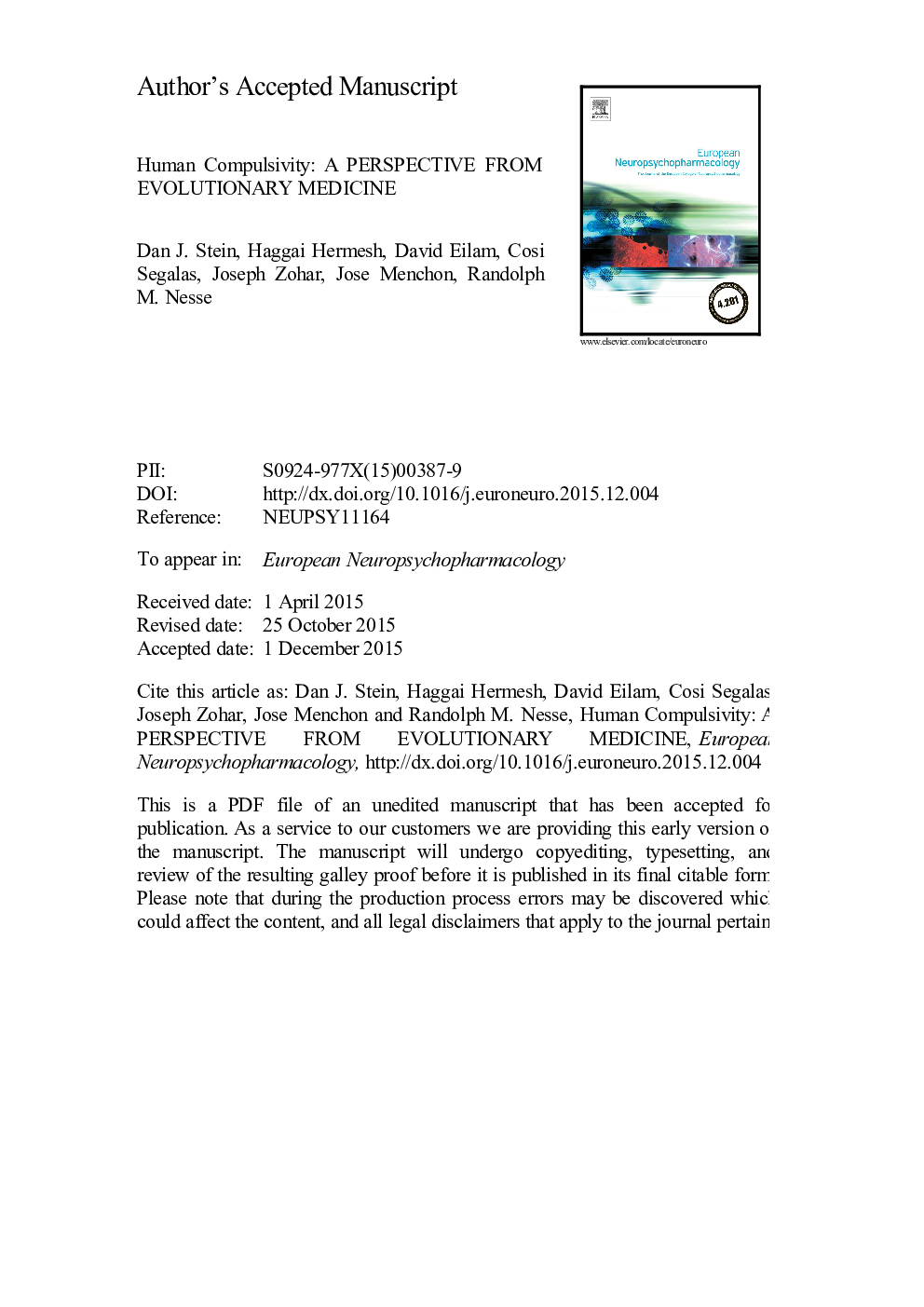| Article ID | Journal | Published Year | Pages | File Type |
|---|---|---|---|---|
| 10298763 | European Neuropsychopharmacology | 2016 | 27 Pages |
Abstract
Biological explanations address not only proximal mechanisms (for example, the underlying neurobiology of obsessive-compulsive disorder), but also distal mechanisms (that is, a consideration of how particular neurobiological mechanisms evolved). Evolutionary medicine has emphasized a series of explanations for vulnerability to disease, including constraints, mismatch, and tradeoffs. The current paper will consider compulsive symptoms in obsessive-compulsive and related disorders and behavioral addictions from this evolutionary perspective. It will argue that while obsessive-compulsive disorder (OCD) is typically best conceptualized as a dysfunction, it is theoretically and clinically valuable to understand some symptoms of obsessive-compulsive and related disorders in terms of useful defenses. The symptoms of behavioral addictions can also be conceptualized in evolutionary terms (for example, mismatch), which in turn provides a sound foundation for approaching assessment and intervention.
Related Topics
Life Sciences
Neuroscience
Biological Psychiatry
Authors
Dan J. Stein, Haggai Hermesh, David Eilam, Cosi Segalas, Joseph Zohar, Jose Menchon, Randolph M. Nesse,
